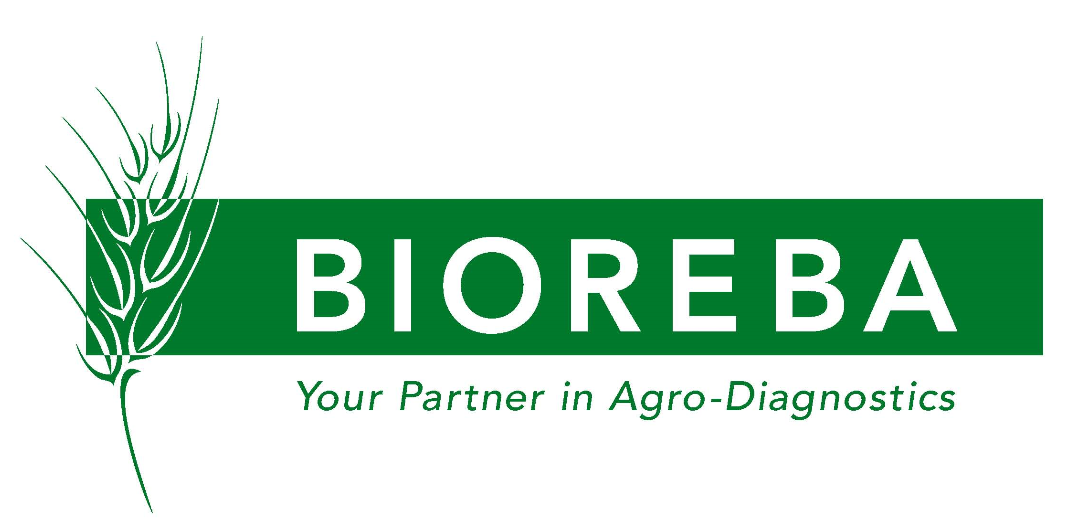

Diagnostic kits
database
Prunus necrotic ringspot virus (PNRSV)
DAS-ELISA
Organism/pest:
Prunus necrotic ringspot virus (PNRSV)
Taxonomic group:
Virus
Manufacturer:
Bioreba


Type of detection:
Serological
Type of test:
ELISA test
Type of method:
DAS-ELISA
Description of the test:
The prunus necrotic ringspot virus (PNRSV) DAS-ELISA Test was developed to detect isolates from plum, apricot or peach. PNRSV (4) has a fairly wide host range among dicotyledonous plants. There is no known insect vector, the virus is transmitted by pollen to seed and to pollinated plants. PNRSV causes necrotic ringspot in many species of Prunus, often with subsequent recovery from symptoms. It causes sweet cherry rugose mosaic, almond calico, a mosaic disease of rose, and is common in hop, in which it is symptomless or associated with ring and band mosaic.
Type of sample:
leaves; flowers; dormant buds; bark of young shoots
Number of target:
1
Target:
Prunus necrotic ringspot virus (PNRSV)
Available extraction method:
Samples are homogenised 1:20 (w/v) in extraction buffer «General». The HOMEX homogenizer in combination with BIOREBA extraction bags is recommended for sample preparation.
Available extraction method PDF:
-
Scope:
These DAS-ELISA reagents (1) were made against an isolate of PNRSV (isolate 1/12) from plum (2). The reagents do not distinguish between isolates from plum, cherry, apricot or peach. The virus can generally be detected in fruit trees without difficulties throughout the whole year, either in leaves, flowers, dormant buds or bark of young shoots (3). Samples are homogenised 1:20 (w/v) in extraction buffer «General» (Art. No. 110120). The product was developed in cooperation with the Martin-Luther-University Halle-Wittenberg, Halle (Saale), Germany.
EPDIA validation datasheet:
-
Other validation data:
Other Validation data PDF:
-
References:
(1) Clark, M.F., and Adams, A.N. 1977. J. gen. Virol. 34:475-483.
(2) Grüntzig, M. and Fuchs, E. 1988. Zentralbl. Mikrobiol. 143:25-37. VEB Gustav Fischer Verlag Jena.
(3) Fuchs, E. Grüntzig, M., and Al Kai, B. 1988. Nachrichtenblatt für den Pflanzenschutz in der DDR. Heft 10. pp. 208-211.
(4) Fulton, R.W. 1970. Description of plant viruses. No. 5. CMI/AAB. 4 pp.
(2) Grüntzig, M. and Fuchs, E. 1988. Zentralbl. Mikrobiol. 143:25-37. VEB Gustav Fischer Verlag Jena.
(3) Fuchs, E. Grüntzig, M., and Al Kai, B. 1988. Nachrichtenblatt für den Pflanzenschutz in der DDR. Heft 10. pp. 208-211.
(4) Fulton, R.W. 1970. Description of plant viruses. No. 5. CMI/AAB. 4 pp.
References PDF:
-
User guidelines/protocol/manual:
MSDS sheet:
Others:
-
Video:
-
Website:
Contact:
Country of production:
Web shop:
www.bioreba.ch
Product code:
151162 (PNRSV Reagent set 960); 151165 (PNRSV Reagent set 480); 151172 (PNRSV Complete kit 960); 151175 (PNRSV Complete kit 480); 151177 (PNRSV Complete kit 96)
Available kit format:
96, 480, 969 reactions
Components:
Reagent set contains:
- PNRSV Prunus necrotic ringspot virus IgG
- PNRSV Prunus necrotic ringspot virus Conjougate
- PNRSV Positive control
- Negative control
- Microtiter plates (F-96)
Complete kit contains
- Reagent set
- Coating-, Conjugate-, Washing-, and Substrate buffers
- Extraction buffer "General"
- PNRSV Prunus necrotic ringspot virus IgG
- PNRSV Prunus necrotic ringspot virus Conjougate
- PNRSV Positive control
- Negative control
- Microtiter plates (F-96)
Complete kit contains
- Reagent set
- Coating-, Conjugate-, Washing-, and Substrate buffers
- Extraction buffer "General"
Other information:
-